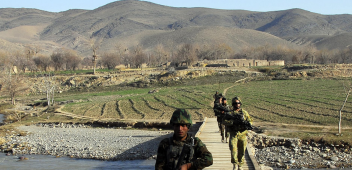Problems to partnership: a plan for Australia-India strategic ties
Australia and India must not squander the chance to build a strategic partnership, argues Rory Medcalf. Bilateral difficulties over student welfare have at least focused high-level attention on the relationship.

- Australia-India relations are under-developed, especially in the security sphere
- A formal security declaration is a logical step
- It needs to link to substantive cooperation, including on military, intelligence and energy issues.
Executive Summary
Strategic ties between Australia and India keep falling short of expectations, despite strong growth in trade. Controversy over the welfare of Indian students has added to differences over uranium exports to cloud what should be promising links between two countries with many common concerns. The relationship will weather recent turbulence. But without major diplomatic initiatives soon, the prospects for a truly strategic partnership between these Indian Ocean democracies will be set back for years.
The relationship needs to be invigorated through a leaders’ commitment to a strategic partnership, informed by a fresh awareness of how each country can help the other increase its security. This needs to be more than rhetoric. A bilateral security declaration would add Australia-India relations to a regional web of defence ties involving Japan and South Korea. India should reciprocate Australia’s overtures to engage as a priority maritime partner, including in exercises. The two armies should help each other too, for example in special forces training.
Australia and India should work to expand common ground on nuclear non-proliferation and disarmament, which might help open the way on uranium sales. Both governments need fully to grasp Australia’s vast potential in ensuring India’s energy security. Regular strategic dialogue should focus on common interests, including relating to China, Pakistan, Afghanistan, terrorism and maritime security. Options should also be explored for new regional arrangements including a three-party forum with Indonesia.
Download the Policy Brief here.



